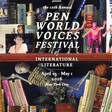The Electronic Intifada 27 May 2016

Extraordinary Rendition: (American) Writers on Palestine, edited by Ru Freeman, OR Press (2015)
Extraordinary Rendition is a beautifully presented anthology, wrapped in a chilling cover that portrays a painting of men with their backs turned as they line up against a wall. The painting, Wall Weeping, is by the South African artist Marlene Dumas, whose recent retrospective at London’s Tate Modern featured a number of works based on the tragedy that is Palestine.
Reading the book, it seems that its intended audience are those who are generally progressive yet excuse their way out of taking a stand on Palestine. It also might be a beneficial read for those who feel gagged for a variety of reasons — ranging from a refusal to see beyond the magnitude of European crimes against the Jewish people, to an unwillingness to upset those around them or damage their own positions against the powers that be (“fear of a backlash from an unnamed and unseen ‘them,’” as the book’s editor, Ru Freeman, puts it).
It is a densely powerful book with a wide range of more 60 contributors, from poets Naomi Shihab Nye, Nathalie Handal, Roger Reeves, Farid Matuk, Steve Wiley and Tess Gallagher; to prose writers Alice Walker, Teju Cole, George Saunders, William Sutcliffe and Nancy Kricorian; playwrights, activists and observers; as well as various court transcripts and the findings of the Russell Tribunal on Palestine.
Rising to the challenge
In her introduction, Freeman quotes Teju Cole’s articulation of the difficulties of writing about Palestinians, seen as “the dispossessed — have to spend their entire lives negotiating what should not be matters for negotiation at all: freedom of movement, the right of self-determination, equal protection under the law.”
Cole’s is a good quotation to start the book as it spells out the difficulty of addressing these issues, including the over-politicization of terminology and the drudgery felt by writers attempting to explain to an unfamiliar audience the human rights abuses that have been documented and systematically ignored for decades.
The need to write about Palestine is evident, as is the challenge to make that writing clear, shocking, stimulating and beyond political cliché. Freeman and the writers included in the volume are to be applauded for rising to this challenge.
“This is not an anthology of agreement, but rather of resolve,” writes Freeman in her introduction. “An effort by writers to utilize the tool which we have been gifted, that of imagination, to embrace ambiguity and uncertainty, to see color in a place where color has itself been outlawed in favor of the stark dichotomies that dissolve empathy, the blacks and the whites of intractability.”
Extraordinary Rendition is distinctive for bringing together the voices of writers and artists who are not necessarily born into the Palestine-Israel conflict (even the word “conflict” is a disputed term, having been criticized for implying a parity of power), and might have lived lives entirely removed from it.
As Nate Brown states in his essay in the book, “This Is Just a Place,” “I was sheltered from the violence and strife between Israelis and Palestinians because it seemed remote, foreign, and of little consequence to my life.” He records the shame he felt that it took him so long to ask “why the ongoing bloodshed seemed so inevitable to everyone.”
Encouragement to speak out
Janne Teller’s contribution provides a creative summary of Palestinian history told through statistics and dates, providing an introduction to the deals, declarations, killings and land grabs that has been the Palestinian fate.
Another skillful piece of editing is the juxtaposition of Chana Bloch’s “Getting the News” — which quotes the former Israeli army chief of staff Dan Halutz stating that when he dropped a bomb from an F-16 he felt “a slight lift of the wing” — with Ramola D’s detailed account of the murder of an entire family during an aerial bombardment.
That account begins: “Daniyah was sucking a sweet red cherry lollipop when the ceiling caved in on her, the weight of several stories of concrete, brick, mortar and steel whistling down to avalanche on her skull, so her hand involuntarily released the lollipop stick and her lungs, choking with fine grey dust, released the world.”
An entry by Ahdaf Soueif, “Last Stop to Jerusalem,” is a masterpiece of descriptive prose that interweaves the factual with the pictorial, highlighting ironies and injustices in a measured, yet ultimately devastating tone.
Also included is the 1988 transcript from the prosecution by Israel of Faisal Husseini, previously the director of the Arab Studies Society in Jerusalem, after his arrest and detention for displaying prisoner art in his institution — underscoring both the impossibility and absurdity of suppressing dissent against injustice as well as emphasizing the power of art under occupation.
Extraordinary Rendition contains many lines that rouse, but the volume is wholly embodied by the young voice of Duranya Freeman, who writes, “I have learned that the only kind of stupidity is that which results from being aware of an injustice, knowing one should speak, but choosing to remain silent.”
This volume is a celebration of those who continue to object, mobilize and creatively inform and is an encouragement to those too nervous to speak out.
Selma Dabbagh is a writer of fiction. She is the author of the novel Out of It (Bloomsbury), several published short stories and a BBC radio play. She also works as a lawyer.





